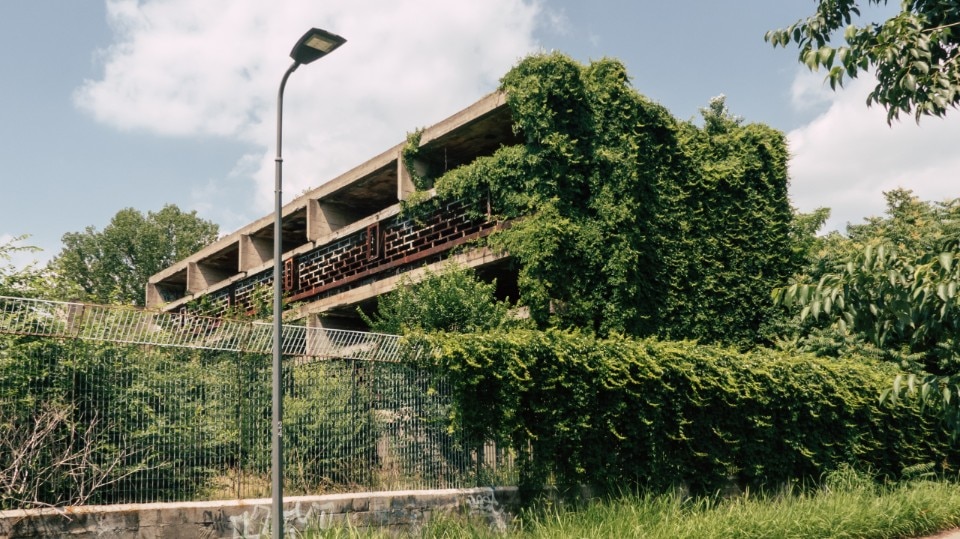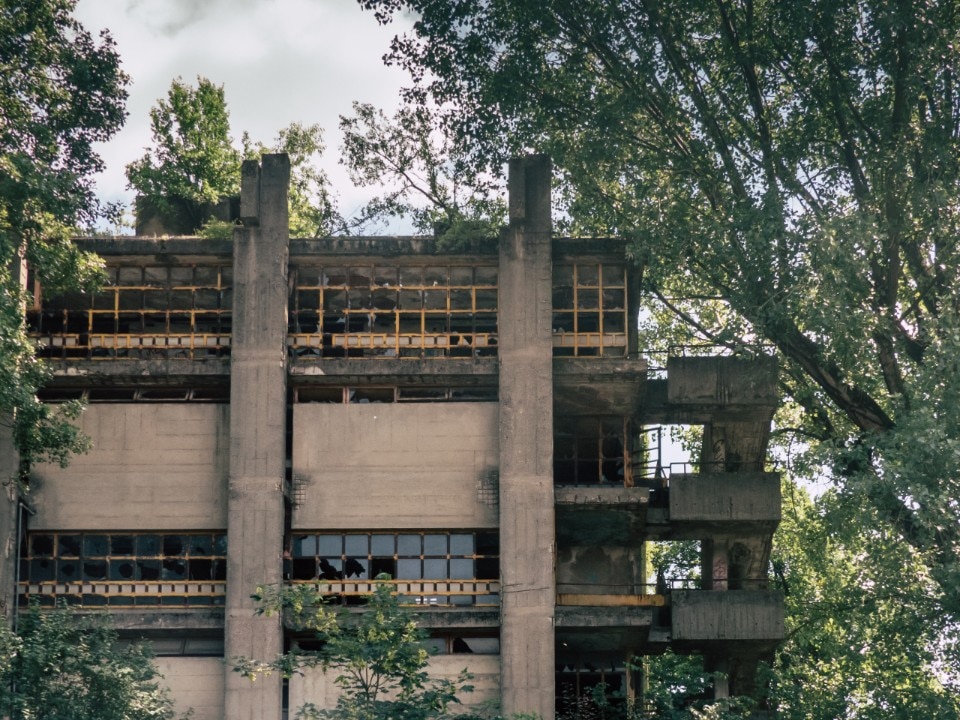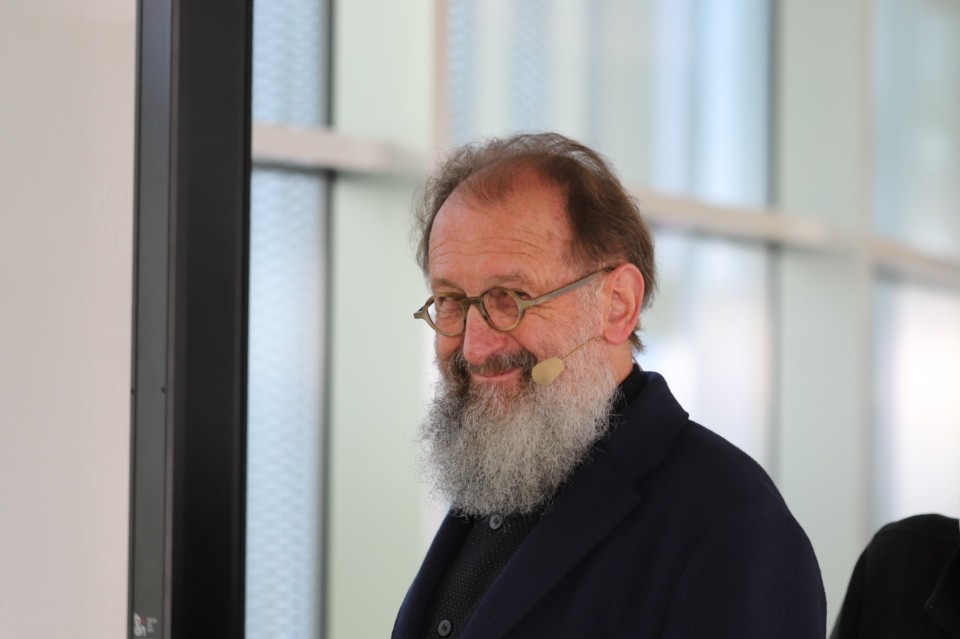Misery, Chaos, Death, Eros, Rebellion, Diversity, Contamination, Freedom: like in his year as Guest Editor at Domus, even during in the seminary conducted in the past few years together with Andrea Branzi, Francesca Balena Arista, Marco De Santi, and Mario Greco at the Politecnico di Milano (Polytechnic University of Milan), Michele De Lucchi follows the value of key words used like tools to conquer the impasses of contemporary design thinking. And in occasion of the 2023 Fuorisalone, through the exhibition Reforming Future, the product of this time of research is exhibited in a place that is itself a generator of thought, for its architectural value, and the vision of the society that created it: the Marchiondi Institute by Vittoriano Viganò.
And if you don’t understand the spirit of the time, if you don’t know how the world works, you cannot design the world.
“We are changing” explains De Lucchi “as designers, as creatives connected to the creation of a contemporary world, and we are changing so much that the way we perceive the designer as a professional who design exclusively objects, materials, shapes, products is no longer current.
And the Marchiondi Institute is a place that clearly expresses these kinds of recent changes we took part in, without us even knowing, in particular the change in education. The education that, in a school-reformatory up to fifty years ago, represented the system to bring rambunctious and unruly students back to the normal, conventional, and conformally recognized society.”

A re-normalization. “Just think of the word reformatory. Just the word gives you shivers. Here, there is a change connected precisely to the way we intend education, it is all the more fit to show what we still need to do. This process of renewing the concept of education is just the beginning, and it must not result in a definitive system, something to be applied in the centuries to come: it must be a change that comes before even more changes come. And so on and on, because change is what guides us. Who was it, Democrito, the one saying that ‘No man ever steps in the same river twice?”
If you beat someone’s head with a stick, all that remains to that person is the beating, not the reason for which they were beaten. If you live in an oppressing world and you continue on creating oppression, the world will operate through oppression.
The value of the key words of this restitution of a place to society, and this attempt to investigate it and show a possible change, is clear and crucial. “This year” confirms De Lucchi “the key word is happiness. Because this great challenge of sustainability – a word that must continually be reinvented as well – can be overcome only if we give to the word sustainability also the meaning of happiness, of something appealing. With trauma, just like in reformatories, nothing works. If you beat someone’s head with a stick, all that remains to that person is the beating, not the reason for which they were beaten. If you live in an oppressing world and you continue on creating oppression, the world will operate through oppression.
This process, even when it is expressed in figures like the angry ecologist, annoys me a lot, because it deeply damages the building of a new mentality, something we need now more than ever, a mentality that can lead to bringing the responsibility for the world around us into our daily activities, in everything we do.
It is a dialectical process that, according to De Lucchi, cannot end because “we are built in a system of constructive opposites. We have happiness if there is sadness, we have light if there is darkness, we are tired if we first have energy. And everything is like that: even this way of approaching change has to be conscious of the fact that there are opposing positions, even in human relations.”

It makes us wonder about which, according to him, was the framework of thinking in which the Marchiondi Institute was designed. “There is a big theme in architecture about the ego of the architect, and it is a key topic, because architecture expresses itself through the personality of the architects, but it is the architects who, with their personality, express the personality of the society in which they operate. And this is always a very delicate balance. In the Brutalist era in which Viganò operated, the ego of the architect dominated over the ego of the society. Let’s think of Scarpa’s relevance – I am also Venetian, half-Venetian – and it is really useful to me to have Carlo Scarpa, and Tobia Scarpa as well, as a reference to dig deeper and investigate this role of the ego of the architect, as an element of balance, as an element that balances individuals and society. In Marchiondi’s case, it was not so much the “fault” of the architect, but a replacement, an overlapping, a change of times and historical processes.”
Like all other architectural design, but perhaps with greater prominence, the Marchiondi stands before us as an expression of its time, and this is the key theme that connects the institute to the work that this year animates it: “The education problem today” for De Lucchi “is to make the students understand the historical moment we are living. The greatest difficulty I have is to bring the students to think that these disciplines, like design, interior design, architecture, make sense in relation to the Zeitgeist, the spirit of the time we are living in. And if you don’t understand the spirit of the time, if you don’t know how the world works, you cannot design the world.
By working with such abstract themes like that of key words, I have more chances to push the students to wonder: in which worlds are they operating? And by doing so, they are the ones who are really teaching things to me, because their eyes are much more present.”


